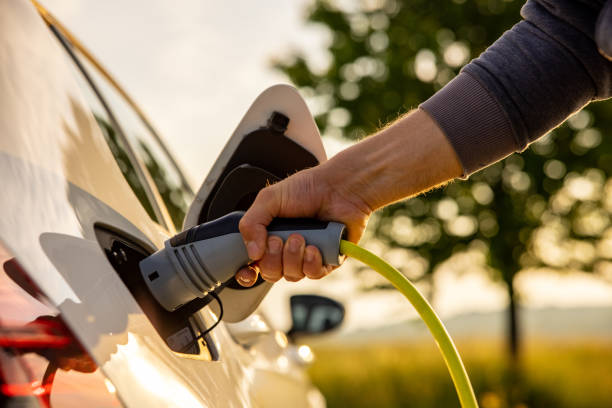
Introduction
The electric vehicle (EV) revolution is reshaping the automotive industry and redefining the future of transportation. Central to this transformation is the rapid advancement in battery technology, which has become a critical driver of innovation in EVs. Battery technology not only influences the performance and range of electric vehicles but also impacts their affordability, environmental benefits, and overall adoption. This essay explores the role of battery technology in driving innovation in electric vehicles, examining current advancements, challenges, and future directions.
The Evolution of Battery Technology
Early Developments in Battery Technology
The journey of battery technology began with early developments in electrochemical cells. The first practical battery, the voltaic pile, was invented by Alessandro Volta in 1800. This early battery was followed by significant milestones, including the development of the lead-acid battery by Gaston Planté in 1859 and the introduction of the nickel-cadmium (NiCd) battery in the 20th century. However, these early technologies were not suitable for electric vehicles due to their limitations in energy density and weight.
The Rise of Lithium-Ion Batteries
The introduction of lithium-ion (Li-ion) batteries in the 1990s marked a significant breakthrough in battery technology. Lithium-ion batteries offer high energy density, low self-discharge rates, and longer cycle life compared to earlier battery technologies. These advantages make Li-ion batteries the preferred choice for modern electric vehicles.
Key advancements in lithium-ion battery technology include:
- Increased Energy Density: Innovations in battery chemistry, such as the development of lithium iron phosphate (LiFePO4) and nickel-cobalt-aluminum (NCA) cathodes, have significantly improved the energy density of Li-ion batteries. This translates to longer driving ranges for electric vehicles.
- Improved Safety: Advances in battery design and manufacturing processes have enhanced the safety of Li-ion batteries. Techniques such as thermal management and the use of safer electrolytes have reduced the risk of thermal runaway and other safety concerns.
- Cost Reduction: Over the past decade, the cost of Li-ion batteries has decreased dramatically due to advancements in manufacturing processes and economies of scale. This reduction in cost has made electric vehicles more affordable and accessible to consumers.
Key Innovations in Battery Technology for Electric Vehicles
Solid-State Batteries
Solid-state batteries represent a promising innovation in battery technology. Unlike traditional Li-ion batteries, which use liquid electrolytes, solid-state batteries use solid electrolytes. This change offers several advantages:
- Higher Energy Density: Solid-state batteries can achieve higher energy densities compared to liquid electrolyte batteries. This means that electric vehicles equipped with solid-state batteries could have extended driving ranges without increasing the size or weight of the battery pack.
- Enhanced Safety: Solid electrolytes are less flammable than liquid electrolytes, reducing the risk of thermal runaway and improving overall safety. This makes solid-state batteries a safer option for electric vehicles.
- Longer Lifespan: Solid-state batteries exhibit lower degradation rates over time, resulting in longer battery lifespans. This longevity is beneficial for electric vehicle owners, reducing the need for frequent battery replacements.
Lithium-Sulfur Batteries
Lithium-sulfur (Li-S) batteries are another emerging technology with the potential to revolutionize electric vehicle batteries. Key benefits of Li-S batteries include:
- High Energy Density: Li-S batteries have a theoretical energy density much higher than that of conventional Li-ion batteries. This could lead to electric vehicles with even greater driving ranges.
- Lower Cost: Sulfur is an abundant and inexpensive material compared to the metals used in Li-ion batteries. This could reduce the overall cost of Li-S batteries and make electric vehicles more affordable.
- Environmental Benefits: Li-S batteries have a lower environmental impact during production and disposal compared to traditional battery technologies. This aligns with the sustainability goals of the electric vehicle industry.
Fast-Charging Technologies
Fast-charging technologies are crucial for improving the convenience and practicality of electric vehicles. Innovations in this area include:
- Ultra-Fast Charging: New developments in charging infrastructure and battery technology have enabled ultra-fast charging capabilities. Electric vehicles equipped with fast-charging batteries can recharge up to 80% of their battery capacity in just 15-30 minutes, reducing charging times and enhancing usability.
- Wireless Charging: Wireless or inductive charging technology allows electric vehicles to charge without physically connecting to a charging station. This technology is still in the early stages of adoption but has the potential to simplify the charging process and increase the convenience for users.
Challenges Facing Battery Technology
Energy Density and Weight
While battery technology has made significant strides, energy density remains a critical challenge. Although advancements have improved energy density, electric vehicles still face limitations in driving range compared to internal combustion engine vehicles. Battery weight also affects vehicle performance and efficiency, making it essential to balance energy density with weight considerations.
Battery Life and Degradation
Battery degradation over time is a concern for electric vehicle owners. Factors such as temperature, charging cycles, and usage patterns can affect battery health and performance. Manufacturers are working on developing batteries with improved longevity and reduced degradation rates, but this remains an ongoing challenge.
Environmental and Resource Concerns
The production of batteries, particularly those using lithium, cobalt, and other rare materials, raises environmental and ethical concerns. Mining practices for these materials can have negative impacts on local ecosystems and communities. Additionally, the disposal and recycling of batteries pose environmental challenges. Addressing these concerns requires advancements in sustainable practices and recycling technologies.
The Impact of Battery Technology on the Electric Vehicle Market
Driving Range and Consumer Adoption
Battery technology directly influences the driving range of electric vehicles, a key factor in consumer adoption. As battery energy density improves, electric vehicles can achieve longer ranges, alleviating concerns about range anxiety and increasing their appeal to potential buyers. The availability of fast-charging infrastructure further supports the adoption of electric vehicles by reducing charging times and improving convenience.
Cost Reduction and Accessibility
Advancements in battery technology have led to significant cost reductions, making electric vehicles more affordable for consumers. As battery costs continue to decline, electric vehicles become increasingly accessible to a broader audience. This affordability, combined with government incentives and subsidies, accelerates the transition to electric transportation.
Environmental Benefits and Sustainability
Electric vehicles equipped with advanced battery technologies contribute to reducing greenhouse gas emissions and improving air quality. The shift from fossil fuel-powered vehicles to electric vehicles aligns with global sustainability goals and helps combat climate change. Sustainable practices in battery production and recycling further enhance the environmental benefits of electric vehicles.
Future Directions and Innovations
Integration of Battery Technology with Renewable Energy
The integration of electric vehicles with renewable energy sources, such as solar and wind power, presents exciting opportunities. Vehicle-to-grid (V2G) technology allows electric vehicles to store excess energy from renewable sources and feed it back into the grid. This integration can enhance the stability and efficiency of renewable energy systems while providing additional value to electric vehicle owners.
Advances in Battery Recycling
Battery recycling is a critical area of focus for the sustainability of electric vehicles. Innovations in recycling technologies aim to recover valuable materials from used batteries and reduce the environmental impact of battery disposal. Closed-loop recycling systems, which reuse materials from old batteries to produce new ones, contribute to a more sustainable battery supply chain.
Collaboration and Industry Partnerships
Collaboration between automakers, technology companies, and research institutions plays a vital role in advancing battery technology. Industry partnerships facilitate knowledge sharing, accelerate research and development, and drive innovation in battery materials, design, and manufacturing processes. Collaborative efforts are essential for addressing the challenges and unlocking the full potential of battery technology.

Conclusion
Battery technology is at the forefront of the electric vehicle revolution, driving innovation and shaping the future of transportation. Advances in battery energy density, safety, and cost have transformed electric vehicles into a viable and appealing alternative to traditional internal combustion engine vehicles. However, challenges such as energy density, battery life, and environmental concerns must be addressed to ensure the continued growth and sustainability of the electric vehicle industry.
The future of electric vehicles will be shaped by ongoing advancements in battery technology, including the development of solid-state and lithium-sulfur batteries, fast-charging innovations, and sustainable practices. As the industry evolves, the integration of electric vehicles with renewable energy sources and advancements in battery recycling will further enhance the environmental benefits and economic viability of electric transportation.
By understanding and addressing the complexities of battery technology, stakeholders can drive the continued success of electric vehicles and contribute to a more sustainable and innovative future for transportation.










